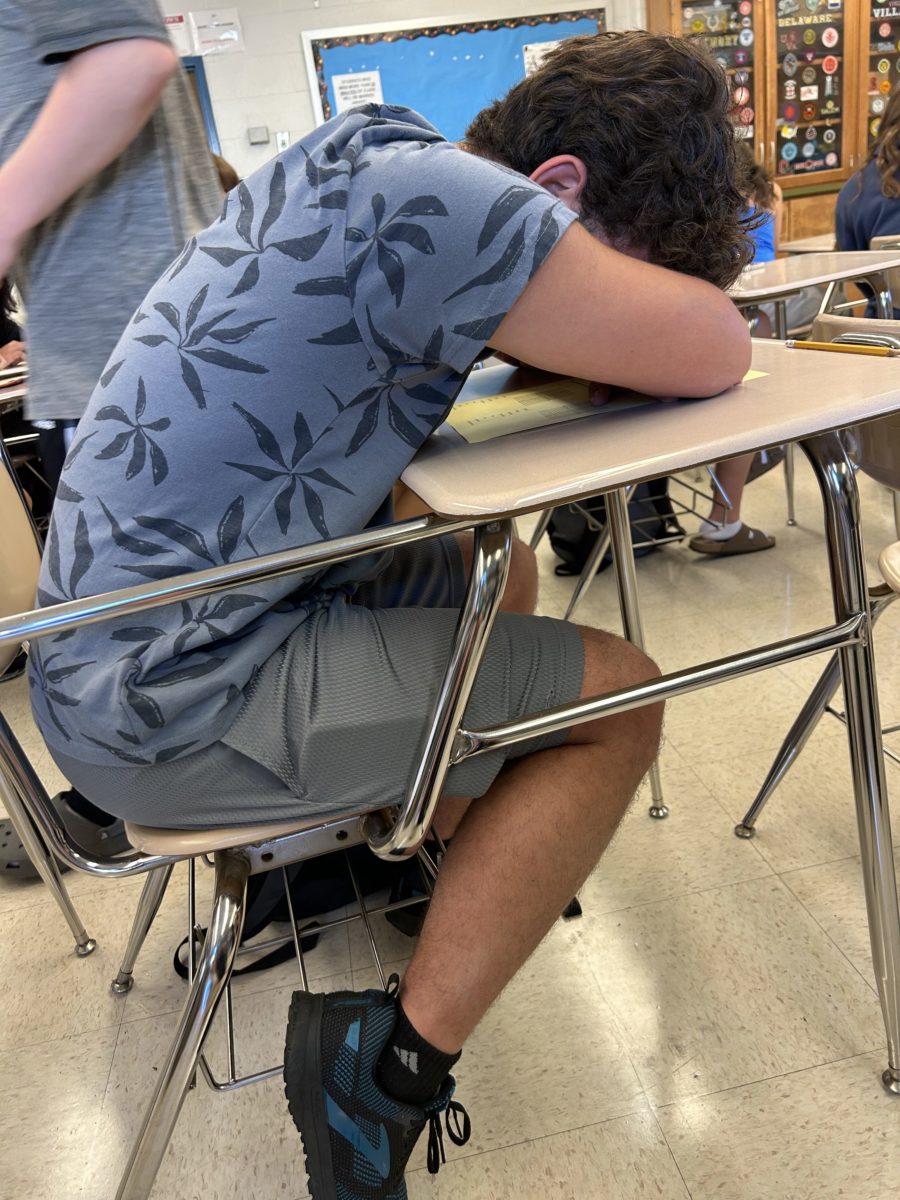School is back in session and students have struggled to adjust. It is frequent for students to experience a lack of sleep due to the early start times required to attend class. Sleep deprivation causes negative effects on a developing student’s brain and it is seen quite often throughout the school.
Typically, students wake up at around 6:30 a.m. to prepare for school and get to class on time. This is a massive difference in comparison to summer because students tend to sleep into the afternoon with the freedom of no commitments. That can be a six-hour difference. “I used to wake up at 12 p.m. and now my sleep schedule is all messed up from the beginning of the school year,” junior Alex Foster said.
Students have been getting less sleep since the summer and it’s only negatively affected their overall performance in the classroom. Studies prove the drastic problems resulting from a student’s deprived sleep schedule. According to an article from Stanford Medicine, sleep deprivation in students can cause “an inability to concentrate, poor grades, anxiety, depression.”
Students experience these negative effects often throughout the day. Sleep deprivation brings downgrades and the ability to concentrate for students of all grades. “I feel tired throughout the whole day and I feel like I’m not reaching my full potential because of it,” Foster said.
Sleep deprivation limits people from performing as well as they can in school, and it has been seen throughout the county. Psychology teacher Jennifer Bauer said students have performed exceptionally better during two-hour delay schedules because of the extra sleep and rest. MCPS debated the idea of swapping the early high school start time with the later elementary school start time in an attempt to regulate these student performances. “Students would do better if high school and elementary school hours switched. The science is there,” Bauer said.
Not only does sleep deprivation mentally affect these students, but there are also a number of problematic physical effects in kids throughout the county as well as throughout the world that can be a direct result of lack of sleep. An article from the National Institute of Health (NIH) mentions multiple detrimental physical problems that are a direct result of sleep deprivation. According to the NIH article, “Sleep deficiency is linked to many chronic health problems, including heart disease, kidney disease, high blood pressure, diabetes, stroke, obesity, and depression.”
Negative effects are unavoidable with the common problem of sleep deprivation in developing students. Ranging from short-term mental side effects to long-term physical, and an overall large threat to safety at all times, sleep deprivation is a striking force of danger. Evidence points to later school hours in an attempt to ultimately fix the issue countywide.








![Editors-in-Chief Ahmed Ibrahim, Helen Manolis, Cameron Cowen, Alex Grainger, Emory Scofield, Hayley Gottesman, Rebekah Buchman and Marley Hoffman create the first print magazine of the year during the October press days. “Only a quarter of the schools in MCPS have programs that are like ours, a thriving, robust program. That makes me really sad. This is not just good for [the student journalists] to be doing this, it’s good for the entire community. What [student journalists] provide to the community is a faith in journalism and that continues for their lifetimes," Starr said.](https://woottoncommonsense.com/wp-content/uploads/2025/10/wmpoFTZkCPiVA3YXA4tnGoSsZ4KmnKYBIfr18p3l-900x1200.jpg)




